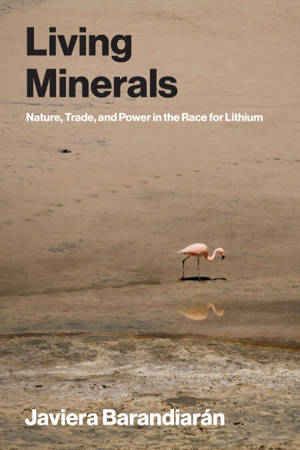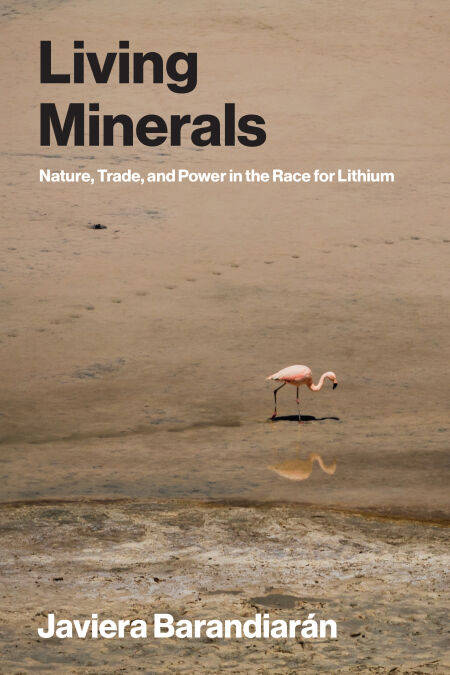
- Afhalen na 1 uur in een winkel met voorraad
- Gratis thuislevering in België vanaf € 30
- Ruim aanbod met 7 miljoen producten
- Afhalen na 1 uur in een winkel met voorraad
- Gratis thuislevering in België vanaf € 30
- Ruim aanbod met 7 miljoen producten
Zoeken
€ 54,21
+ 54 punten
Omschrijving
A sobering investigation of the rush for lithium for electric vehicles, the problematic history of lithium mining, and the consequences for sustainability.
Consumers today are buying electric vehicles with lithium-ion batteries motivated by the belief that they are doing good and decarbonizing society. But is sustainable lithium extraction possible? In Living Minerals, Javiera Barandiarán examines the history of lithium mining and uses during the twentieth century, with a specific focus on the two oldest brine-lithium mines: Silver Peak, Nevada, and Salar de Atacama, Chile, where lithium is found as one more element in a liquid mix of salts, minerals, and organisms.
For six decades, mining experts have failed to ask about water usage, about waste or brine leakage, and about the ecosystem impacts in delicate deserts. Instead, they have relied on various fictions about the size of reserves, the fate of leaked brine, or the value of waste in facilitating mine development. These fictions, rooted in brine-lithium’s material qualities, could be sustained thanks to powerful mining memories that celebrated resource nationalism. Unique in its historical and multidimensional approach to minerals and mining, based on the novel Rights of Nature paradigm, and using new archival materials from both Chile and the US, the book argues that decarbonizing society requires that we reckon with these realities—or risk deepening our dependency on an unsustainable mining industry.
Consumers today are buying electric vehicles with lithium-ion batteries motivated by the belief that they are doing good and decarbonizing society. But is sustainable lithium extraction possible? In Living Minerals, Javiera Barandiarán examines the history of lithium mining and uses during the twentieth century, with a specific focus on the two oldest brine-lithium mines: Silver Peak, Nevada, and Salar de Atacama, Chile, where lithium is found as one more element in a liquid mix of salts, minerals, and organisms.
For six decades, mining experts have failed to ask about water usage, about waste or brine leakage, and about the ecosystem impacts in delicate deserts. Instead, they have relied on various fictions about the size of reserves, the fate of leaked brine, or the value of waste in facilitating mine development. These fictions, rooted in brine-lithium’s material qualities, could be sustained thanks to powerful mining memories that celebrated resource nationalism. Unique in its historical and multidimensional approach to minerals and mining, based on the novel Rights of Nature paradigm, and using new archival materials from both Chile and the US, the book argues that decarbonizing society requires that we reckon with these realities—or risk deepening our dependency on an unsustainable mining industry.
Specificaties
Betrokkenen
- Auteur(s):
- Uitgeverij:
Inhoud
- Aantal bladzijden:
- 296
- Taal:
- Engels
- Reeks:
Eigenschappen
- Productcode (EAN):
- 9780262385367
- Verschijningsdatum:
- 12/01/2026
- Uitvoering:
- E-book
- Beveiligd met:
- Adobe DRM
- Formaat:
- ePub

Alleen bij Standaard Boekhandel
+ 54 punten op je klantenkaart van Standaard Boekhandel
Beoordelingen
We publiceren alleen reviews die voldoen aan de voorwaarden voor reviews. Bekijk onze voorwaarden voor reviews.








